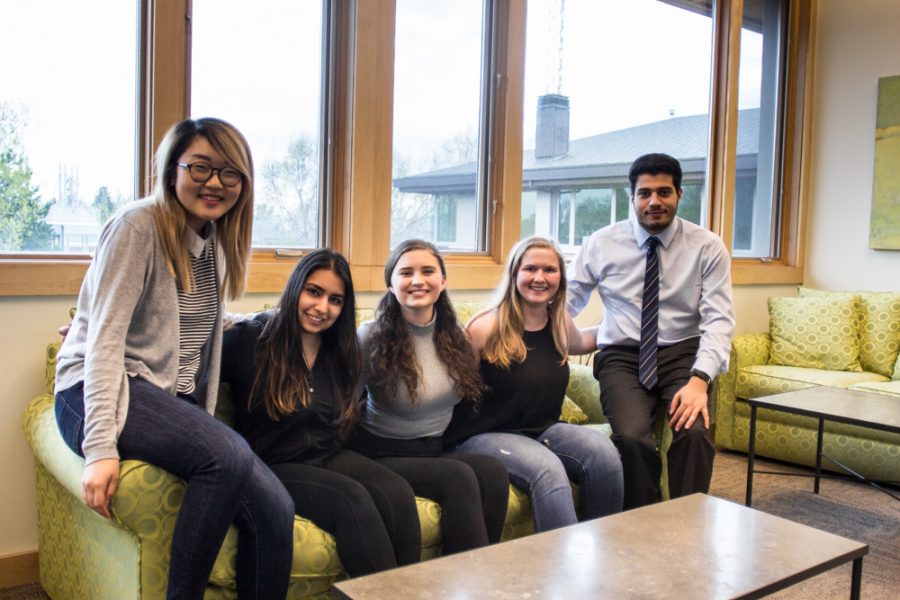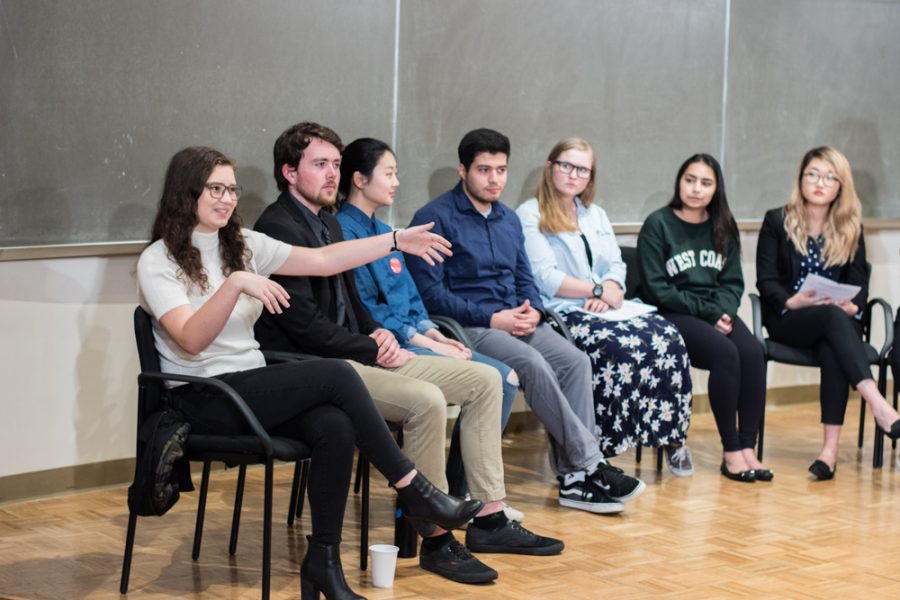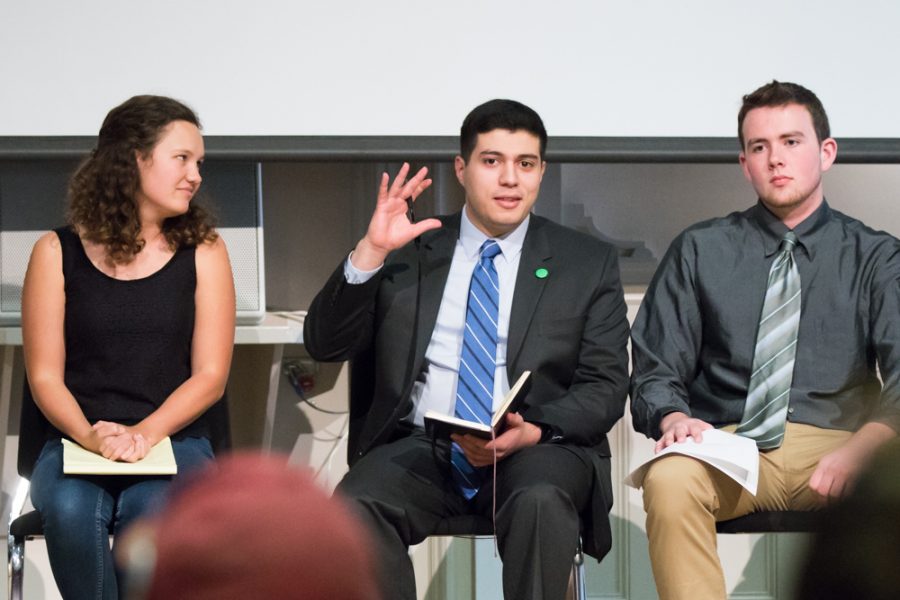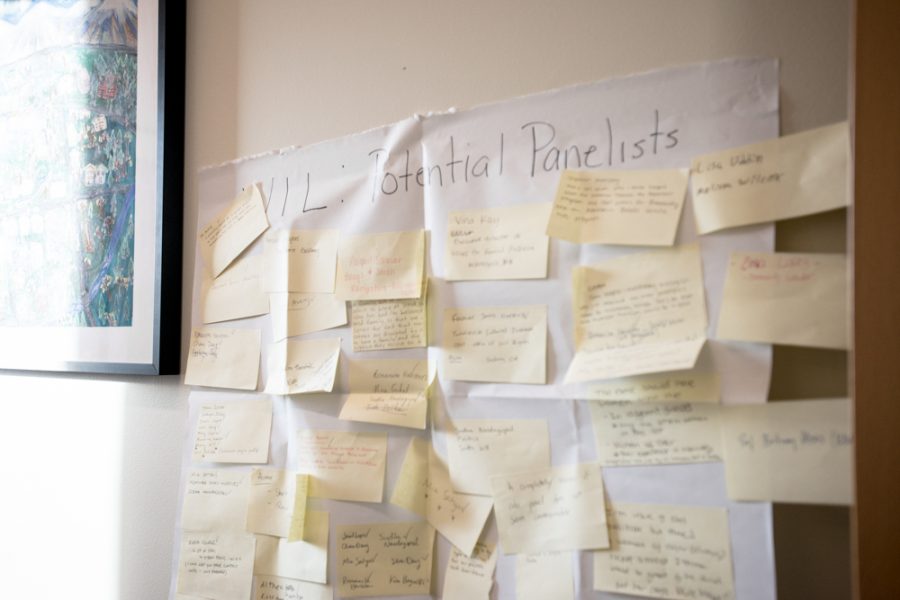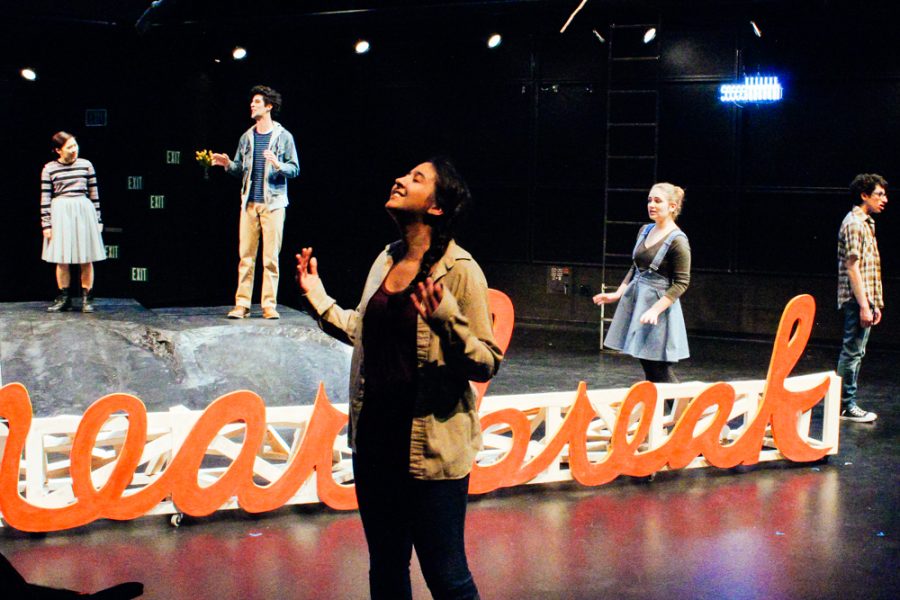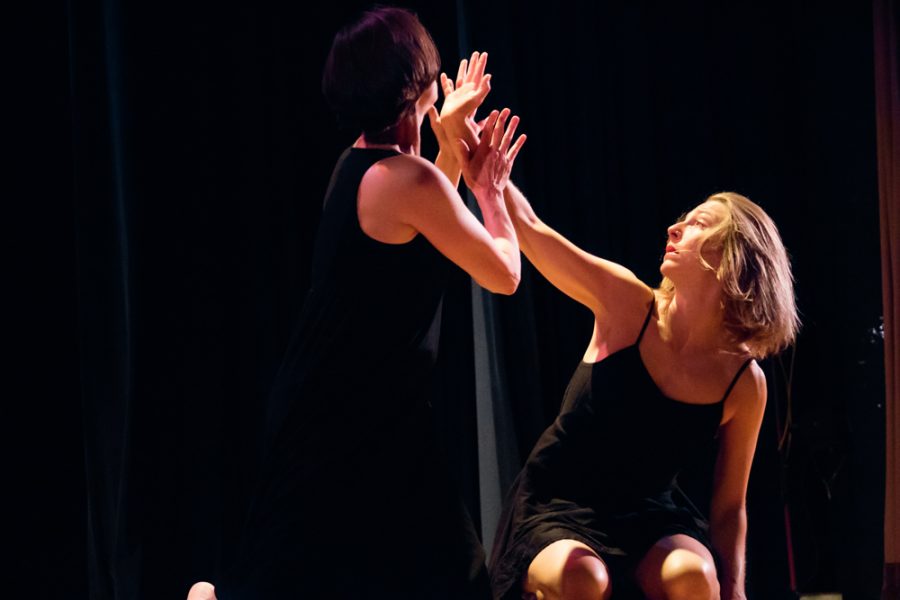
A panel of five female science professors gathered for the Women in Science panel on Tuesday, Nov. 5 in order to shed light on the adversities that women face in the field of science. Led by Associate Professor of Geology Kirsten Nicolaysen, the panelists discussed their own personal experiences in their respective fields, explained ways in which female scientists might experience discrimination and gave advice on how to succeed in spite of those challenges.
Nicolaysen began the discussion by relating her personal experiences with sexism at The Massachusetts Institute of Technology (MIT). A committee conducted a study of the role of women at the institution, finding that women made up eight percent of the school of science at that time, and had been a steady eight percent for two decades. That translated to 15 women in the school of science, compared to 194 men.
“The study not only documented how many women there were on the faculty and had been through time, but they found that consistent inequities in salary, in office space –– on average women faculty members had offices that were half the size of male faculty members ––and also in terms of funding that was provided by the institution to help establish their research programs,” said Nicolaysen.
Nicolaysen then asked the panelists if they identified as feminists. Associate Professor of Astronomy Andrea Dobson responded affirmatively, but noted that the term carries some complications.
“It’s a word that may or may not have run its course as being useful, but by and large it seems to define anyone who describes women as actual human beings. So yeah, feminist, yes,” said Dobson.

The panel then turned to their own experiences and how they reflected the experiences of women in science as a whole. Associate Professor of Chemistry Marion Gotz had a different experience from her colleagues, in that she completed her postdoctoral research in Germany, where she experienced open sexism.
“The gender separation in the sciences is still very dramatic … So when you’re in a position like that, you hear these comments. As a graduate student or as a post-doc, you feel really powerless. Because you really are at the power of your advisors writing letters of recommendation for you. So you’re always afraid to say something,” she said.
Others on the panel, such as Dobson, related more subtle instances of sexism they encountered. This included employer’s insensitivity to chemicals that might be harmful to pregnancy, the problem of finding child-care and uncomfortable relationships with male advisors.
Senior Kate Kight saw similarities between the challenges that women face in science and in the field of humanities.
“As a humanities major, I was surprised at how similar the issues are for woman getting ahead in their respective fields. We don’t suffer from the same depressing statistics as the science department, but the idea that a woman has to walk the line between being confident and assertive and yet not cross over into aggressive and bitchy, that is certainly cross discipline,” said Kight in an email.
The panelists ended the lecture with advice to all of the students in the room. Gotz encouraged women not to get discouraged, and Assistant Professor of Biology Leena Knight added that the experience can actually make women stronger.

“I know [my female colleagues] are there in spite of all of these negative scenarios that were placed in front of them. So it can be done, and I think it’s a process that might make you stronger. Not to say that it justifies what the scenario is,” said Knight. “I think you should know that you get through this process, and you find people that are just as strong and just as capable.”
The panel spoke to a crowded room of males and females, science majors and non-science majors alike. Kight spoke to the success of the FACE event.
“I was struck by this panel at what an incredible turnout there was. I attend almost every FACE event, and I saw a ton of new faces tonight,” she said. “I’m really excited because I think that means Whitman students really care about making science welcoming to women, and that the organizers did a great job putting together an event relevant to campus.”


